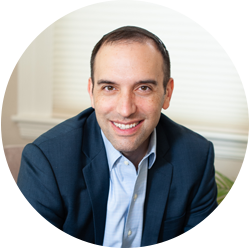Dear Friends,
Today is Lag B’Omer, the Jewish holiday that falls on day 33 of the 49 days between Passover and Shavuot. According to the rabbinic tradition, this is a period during which we observe certain mourning rituals to commemorate a plague that killed 12,000 pairs of students of the great Rabbi Akiva. On Lag B’Omer — tradition has it — the plague ceased, and therefore this is a day of celebration. Today, we celebrate a respite from death.
While we’re still feeling the pandemic here and around the world, the idea of a plague ceasing cannot be lost on any of us as we see and feel the light at the end of this long COVID-19 tunnel. Many of us in Massachusetts are at least partially vaccinated, and Governor Baker has announced a full reopening date. Spring weather is making it easier to have safe outdoor gatherings to reconnect with those we haven’t seen for months. It is hard not to feel like the plague is beginning to end. The feeling that we are beginning to emerge brings a sense of hope and possibility.
Yet, along with hope, each day also seems to bring more evidence of how daunting the work ahead will be. This week alone, COVID-19 death tolls from India, parts of South America, and other places around the world continue to be devastating and heartbreaking. Last night in Israel, at least 45 people were crushed to death at a massive Lag B’Omer gathering. Prime Minister Netanyahu has declared Sunday a national day of mourning, and our thoughts and prayers are with the victims and their families.
This comes after a week in which rockets were fired at Israeli communities from Gaza and violent clashes in Jerusalem featured hate speech from extremists whose behavior is shameful for Israel and the Jewish People. In our social and political climate here at home, we continue to see and feel polarization and demonization based on seemingly irreconcilable differences of values and worldviews.
Exhausted and in need of personal grieving and self-restoration, we are emerging into a very broken world that desperately needs our healing and our work. Where do we begin?
Perhaps there is something to learn from Lag B’Omer and Rabbi Akiva’s students. One reason the Talmud gives for their deaths was that they “did not behave with respect (kavod) toward one another.” This is so simple, yet so profound: Lag B’Omer celebrates the ceasing of disrespect.
This was a generation of scholars who were saving the Jewish People. Through the dynamism of their learning — engaged with one another in interpreting and applying Jewish tradition and values — they were preserving the past and creating the Jewish future. I suspect that their arguments about Torah reflected those of America’s Founding Fathers about the nature of the democracy they were building.
Debate, disagreement, and generative conflict are hallmarks of a strong, healthy society. Tragically, Rabbi Akiva’s students failed to realize that what can seem like an intellectual or ideological exercise is also a profoundly ethical one. The nature of how we engage with those with whom we disagree is what ultimately can make or break us.
When we speak and behave in ways that demonize, vilify, and shame rather than humanize and dignify (even those who feel opposed to us) — we do so at our collective peril.
I know this is not simple. We need new tools to engage with one another across differences, including how to put stakes in the ground about the values we hold sacred and inviolable. We also have massive, systemic challenges and injustices to address in our country and our world that can feel overwhelming.
At the same time, perhaps the tragic tale of Rabbi Akiva’s students and Lag B’Omer are also teaching us that one of the bars for healing ourselves and one another is not that high: cease being a jerk. Strive to speak and act with respect and kindness — for one another, for our world, for ourselves. We can restore human dignity, one interaction at a time.
Shabbat Shalom,
Rabbi Marc Baker

About the Author
CJP President and CEO Rabbi Marc Baker is an educator, writer, and leadership mentor who is devoting his life to Jewish learning and building Jewish communities.
